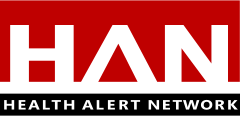Nationwide Shortage of Tuberculin Skin Test Antigens: CDC Recommendations for Patient Care and Public Health Practice
Distributed via the CDC Health Alert Network
April 12, 2013, 11:00 a.m. EDT
CDCHAN-00345
Summary
TUBERSOL®, a product of Sanofi Pasteur Limited, is in shortage nationwide until at least the end of May 2013. TUBERSOL® is one of two purified-protein derivative (PPD) tuberculin products that are licensed by the United States Food and Drug Administration (FDA). The manufacturer notified CDC that 50-dose vials of TUBERSOL® are unavailable and that the supplies of 10-dose vials will be limited. This notice advises public health officials, clinicians, and workers in occupational health and infection control about how to adapt to the shortage.
JHP Pharmaceuticals, LLC, the manufacturer of APLISOL®, the other PPD tuberculin product that is licensed by FDA, has notified FDA that the product is on allocation and is available in restricted quantity. Acute local shortages of APLISOL® are being reported to CDC by healthcare providers who switch from TUBERSOL® to APLISOL®.
Background
Two kinds of immunological methods are used for detecting Mycobacterium tuberculosis infection: tuberculin skin tests (TSTs) and interferon-γ release assay (IGRA) blood tests. The indications for using these tests are the same for the two methods, although one or the other method is preferred for certain populations (1), and this could play a factor in setting priorities when one of the methods is unavailable. Together, these tests are the only means for detecting latent M. tuberculosis infection, and they contribute to diagnosing tuberculosis (TB) disease. When findings such as chest radiography and mycobacterial cultures are sufficient for confirming or excluding the TB diagnosis, the results from a TST or an IGRA blood test might not be needed (2). However, most TB cases in the United States are diagnosed with a set of findings including results from one of these tests. When TB disease is strongly suspected, specific treatment should be started regardless of results from tuberculin skin test or an IGRA blood test (1,3).
In controlled studies, the concordance between TST results from TUBERSOL® and APLISOL® is high. The concordance between results from a TST and an IGRA blood test or between results from the two commercial IGRA blood tests is lower (1).
Recommendations
CDC recommends any of three general approaches for addressing the shortages of tuberculin skin test antigens:
- Substitute IGRA blood tests for TSTs. The costs associated with using the blood tests can be greater than the cost of TSTs. The blood tests require phlebotomy, preparation of blood specimens, and specific laboratory services for analysis. Thus, these tests are not available in all practice settings. Clinicians who use the IGRA blood tests should be aware that the criteria for test interpretation are different than the criteria for interpreting TSTs (1).
- Allocate TSTs to priority indications, such as TB contact investigations, as determined by public health authorities. This might require deferment of testing some persons. CDC does not recommend testing persons who are not at risk of TB (4).
- Substitute APLISOL® for TUBERSOL® for skin testing. In cross-sectional studies, the two products give similar results for most patients. Shortages of APLISOL® are expected to become more widespread, thus limiting the feasibility of this approach.
Some surveillance programs for TB infection control rely on routine serial TSTs. Switching products or methods might make serial changes in test results difficult to interpret: the apparent conversions of results from negative to positive or reversions from positive to negative could be caused by inherent inter-product or inter-method discordance (1,5). In settings with a low likelihood of TB exposure, the deferment of routine serial testing should be considered in consultation with public health and occupational health authorities.
References
1. CDC. Updated guidelines for using interferon gamma release assays to detect Mycobacterium tuberculosis infection — United States, 2010. MMWR 2010;59 (RR-5). http://www.cdc.gov/mmwr/PDF/rr/rr5905.pdf.
2. American Thoracic Society. Diagnostic standards and classification of tuberculosis in adults and children. Am J Respir Crit Care Med 2000;161:1376–95. http://www.cdc.gov/tb/publications/PDF/1376.pdf.
3. CDC. Treatment of tuberculosis. MMWR 2003;52(RR-11). http://www.cdc.gov/mmwr/PDF/rr/rr5211.pdf.
4. CDC. Targeted tuberculin testing and treatment of latent tuberculosis infection. MMWR 2000;49(RR-6). http://www.cdc.gov/mmwr/PDF/rr/rr4906.pdf.
5. CDC. Guidelines for preventing the transmission of Mycobacterium tuberculosis in health-care settings, 2005. MMWR 2005;54(RR-17) http://www.cdc.gov/mmwr/pdf/rr/rr5417.pdf.
The Centers for Disease Control and Prevention (CDC) protects people's health and safety by preventing and controlling diseases and injuries; enhances health decisions by providing credible information on critical health issues; and promotes healthy living through strong partnerships with local, national and international organizations.
Department of Health and Human Services
HAN Message Types
- Health Alert: Conveys the highest level of importance; warrants immediate action or attention. Example: HAN00001
- Health Advisory: Provides important information for a specific incident or situation; may not require immediate action. Example: HAN00346
- Health Update: Provides updated information regarding an incident or situation; unlikely to require immediate action. Example: HAN00342
- Info Service: Provides general information that is not necessarily considered to be of an emergent nature. Example: HAN00345
###
This message was distributed to state and local health officers, state and local epidemiologists, state and local laboratory directors, public information officers, HAN coordinators, and clinician organizations.
###
Additional Resources
- Page last reviewed: April 12, 2013
- Page last updated: April 12, 2013
- Content source:
- Division of Emergency Operations (DEO); Office of Public Health Preparedness and Response (OPHPR)
- Maintained By:


 ShareCompartir
ShareCompartir
